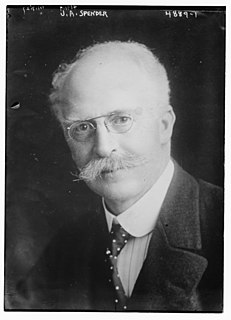A Quote by Orrin Hatch
Vigilant and effective antitrust enforcement today is preferable to the heavy hand of government regulation of the Internet tomorrow.
Related Quotes
Beginning in the Clinton administration, there was, for nearly two decades, a broad bipartisan consensus that the best Internet policy was light-touch regulation - rules that promoted competition and kept the Internet 'unfettered by federal or state regulation.' Under this policy, a free and open Internet flourished.































